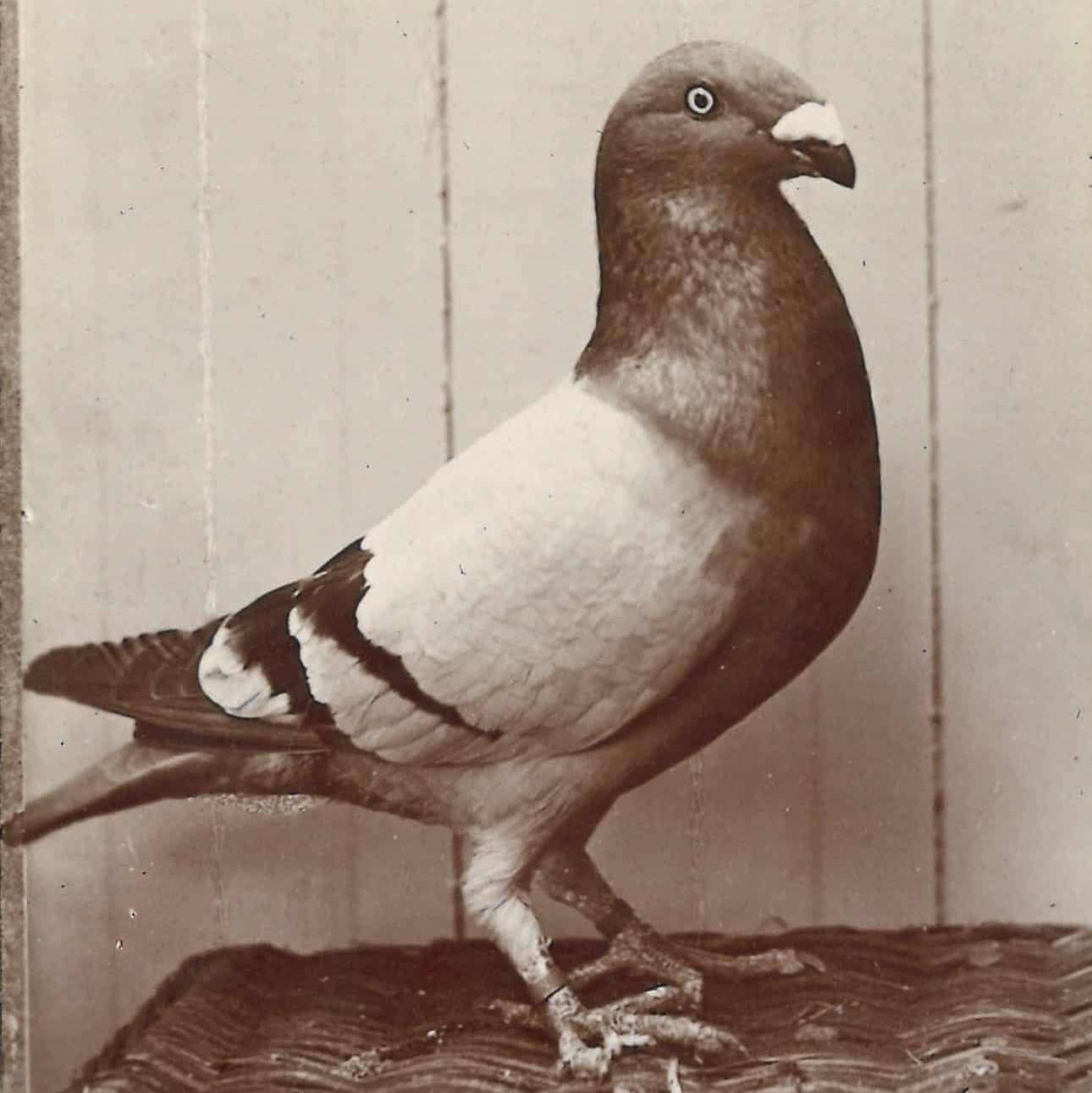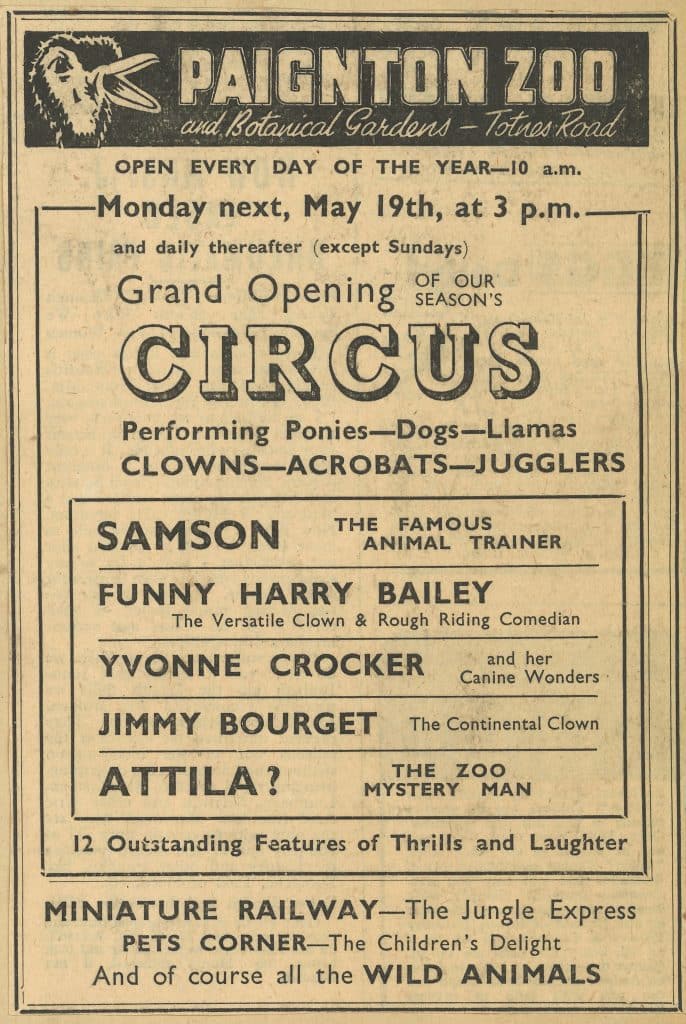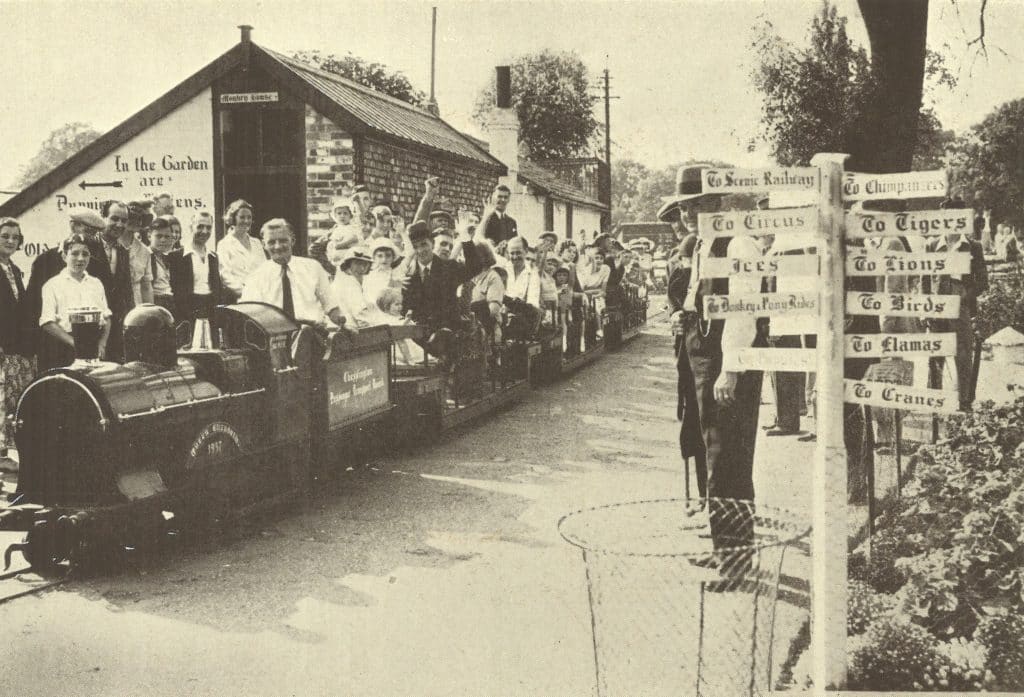Our Story: The war years
This is part 3 in a four-part series of blogs documenting the early history of Paignton Zoo (click here to read part 1, and here to read part 2)
Neither our founder Herbert Whitley nor his brother William were enlisted for World War I; Herbert suffered from poor eyesight and William had a chronic leg injury caused by falling through a skylight when he was younger. Instead, they remained at Primley House and continued to run the surrounding estate. It was at this time that Herbert’s passion for exotic species began to take hold: he acquired a pet monkey, free-flying cockatoos and a colourful assortment of fish, reptiles, amphibians and plants. His collection of pigeons continued to grow, too.

Everything except the pigeons…
When World War II broke out, Whitley applied his expertise as a pigeon fancier to contribute to the war effort, and many of his birds were bred and sent overseas as carrier pigeons. It was around this time that he was considering reducing his zoological collection to only pigeons due to disputes with the tax office. Herbert’s instruction was to rehome ‘everything except the pigeons’, and if it hadn’t have been for a call from Reginal Goddard, the owner of Chessington Zoo in London, that might have been the end for Paignton Zoo.
The Blitz had made the city unsafe and Goddard was looking to relocate his animals to the countryside to protect them, much like the many children that were evacuated from the city during this time. Goddard thought that Primley Zoo, as it was then known, was the perfect home for his animals, and Herbert agreed, so the Chessington collection moved to Paignton. Unbeknownst to Whitley at the time, this decision would signal the end of his tenure as sole owner of the zoo.

Devon Zoo and Circus
From Chessington came not only a variety of animals – including Vicky the mathematical dog, Romeo the Hackney stallion and Jumbo the baby elephant – but an entire circus complete with acrobats and clowns, and the famous Jungle Express (the popular miniature railway that ran from 1940 until 2022).
Following the end of the war, tourists once again began flocking to the South Devon coast, and advertisements for the newly renamed ‘Devon Zoo and Circus’ drew huge crowds. The boost in revenue allowed the zoo to continue expanding for the following years, with more exhibits attracting even more visitors. Business was booming!
Next week we’ll be releasing the final blog in the ‘Our Story’ series… Part 4: A charitable Trust was born




